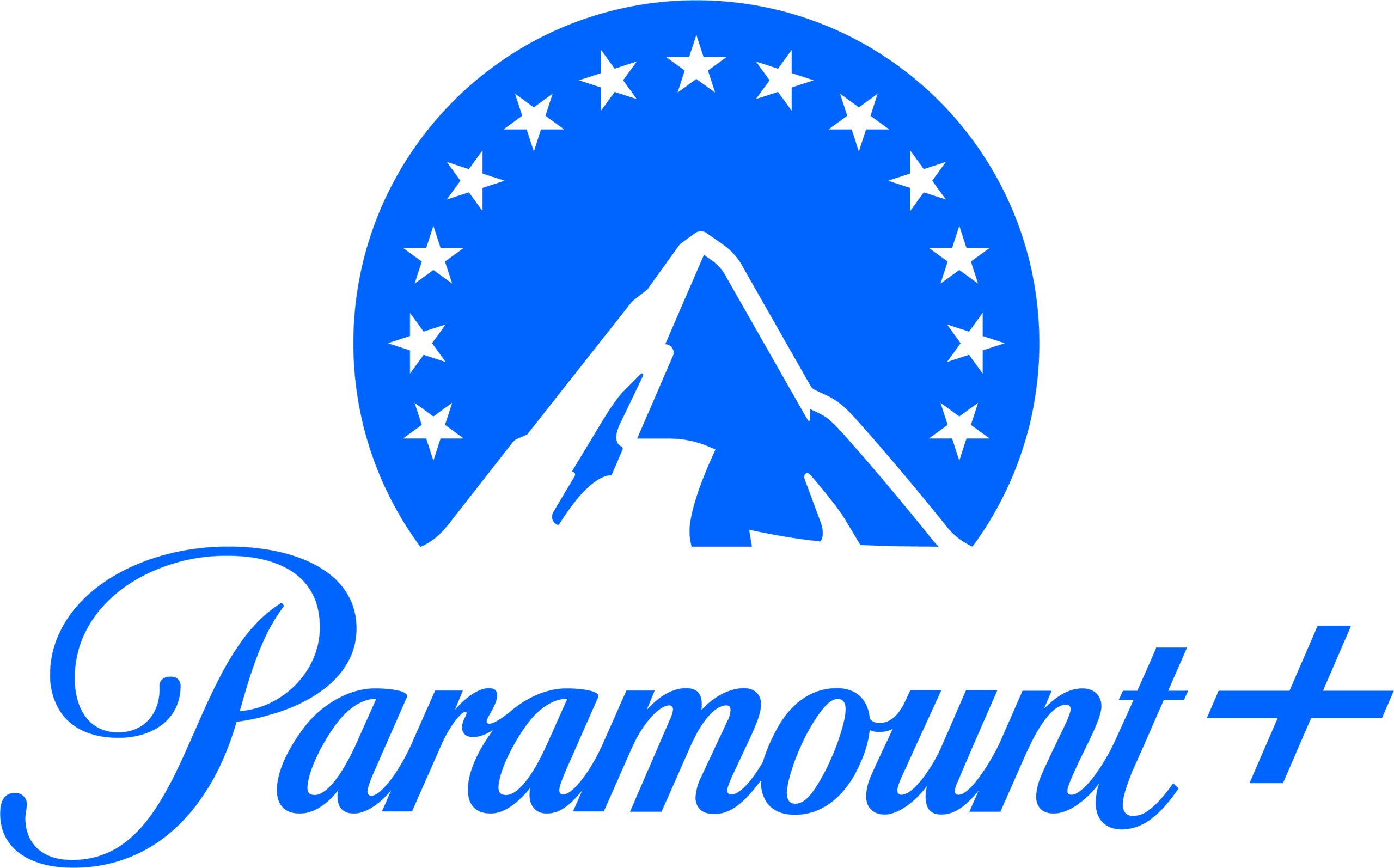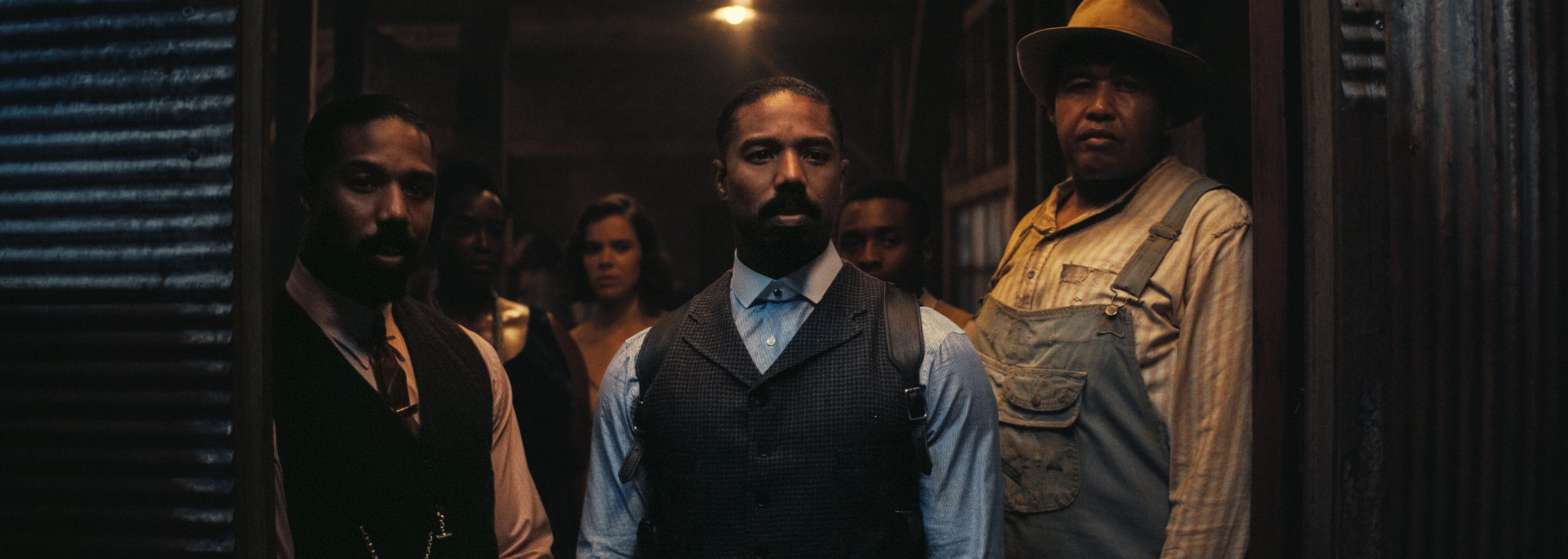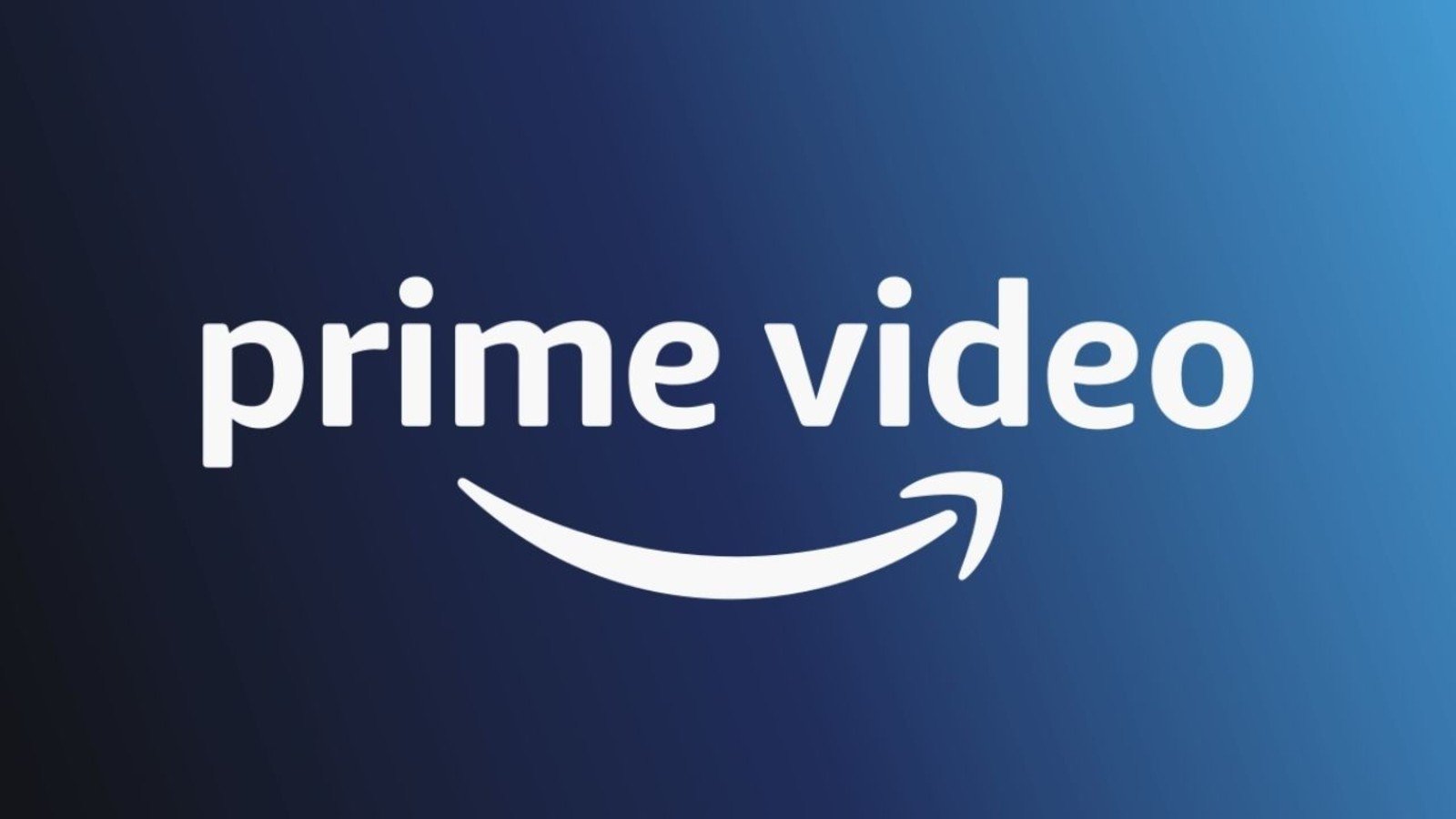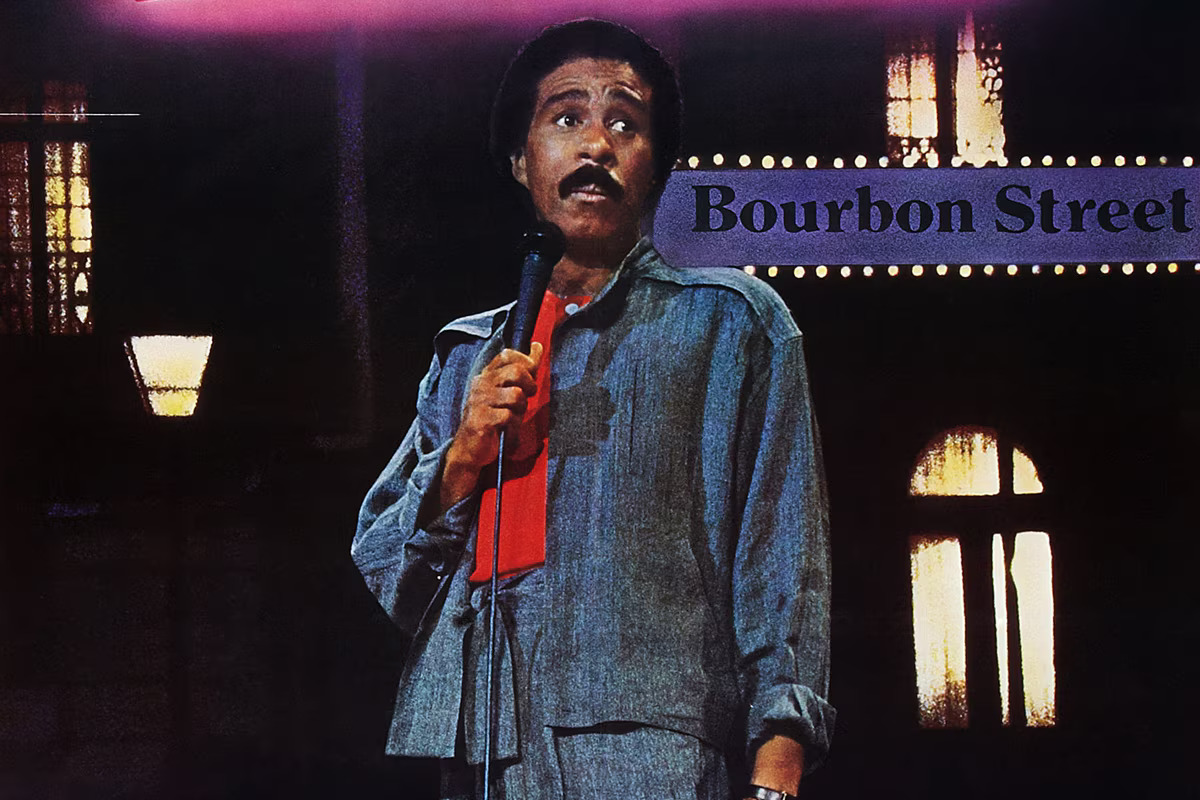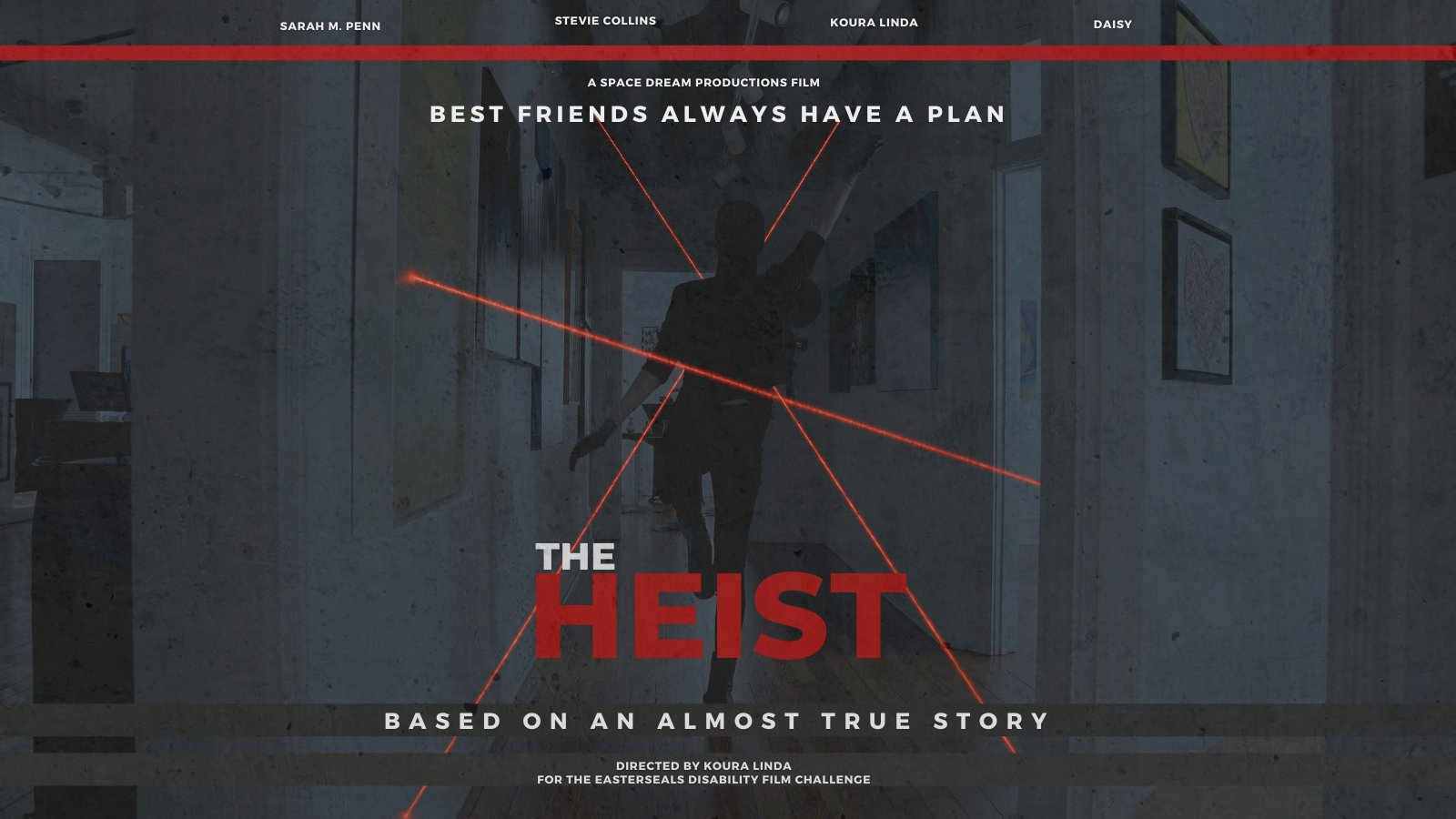
Koura Linda spoke with Solzy at the Movies about The Heist, a new short film submitted for the Easterseals Disability Film Challenge.
The film runs just under 6 minutes and can be viewed here.

It’s so nice getting to chat with you in a setting that isn’t a shared AirBnb at Sundance. How are you doing?
Koura Linda: It is! I’m over all good – lots of projects happening right now, which is good!
As a Lebanese-Syrian Jewish woman, I’m obviously struggling for many reasons.
It is so hard for me to see the total disregard for human life from so many media outlets, government leaders, and just people across the world.
Pouring myself into my work has been a good distraction – especially working on meaningful projects.
What was the genesis behind The Heist?
Koura Linda: Can I say “Let me tell you I live in America, without saying ‘I live in America’?”
Don’t get me wrong – there are a lot of things I am super thankful for living here. But as someone who lives with multiple disabilities, I can also say that our healthcare system is a bit of a joke.
On The Heist poster, it says “Based On An Almost True Story” because late last year I ended up in the hospital for about a week. While in the hospital I was misdiagnosed with a blood clot in my brain, transferred to the ICU via ambulance. This was Thanksgiving Day, so I wasn’t allowed to eat or drink anything to be ready for surgery.
When I got to the ICU they said it was a mistake, canceled the surgery, sent me back via ambulance to the other hospital, and then billed me for 24 hours in the ICU, 2 ambulance transports, and the additional testing and neurology.
Needless to say, those are not cheap bills, and all told, I was left joking that I was going to have to rob a bank if I was going to ever be able to pay for these. (Please note: I will not, in fact, rob a bank!)
When the Easterseals Disability Film Challenge announced the genre of “buddy comedy” for this year’s challenge, I knew two things: I was going to make a film with one of my absolute best friends and forever partner in shenanigans, Stevie Collins. And we were going to make a film about two people with disabilities (myself, and Stevie, who is Deaf) pulling off an art heist to pay for crushing medical bills. Very thankful Stevie was down to co-write it with me!
While I wanted disability representation to be an element of the project, I didn’t want the film to be anything tropey, or edging on a PSA. I wanted it to be something (hopefully) fun, and funny, AND meaningful.
What was the most challenging aspect of the production?
Koura Linda: There were a lot of facets to the production that were a lot. I have never singly directed a film I was also starring in and almost all of my dialogue was in ASL and English.
I was the Producer, Director, Line Producer, UPM, 1st AD, 2nd AD, co-Writer, co-DP, co-Gaffer, Production Designer, Wardrobe Stylist, Hair/Makeup Artist for myself, Set Designer, Graphics Designer, Propsmaster, Crafty/Catering Coordinator, Stunt Choreographer/Coordinator, Casting Director, Location Manager, PR/Media Rep, Lead Editor, Colorist, VFX Artist, and Talent, etc.
We weren’t allowed to lock the script until after about 3:00PM the day before we started shooting. While I co-wrote the script, I wasn’t able to actually sit down to fully learn my lines until the night before. I was sitting on camera using my personal phone and notebook with the shotlist as props for my character so I could be previewing the VFX shots being sent in from our VFX Supervisor, Alex Heffner, up in Canada, while I was checking the set up for a next shot between takes.
I was thankfully working with some incredible people, and Stevie and Sarah M. Penn (who played Queenie, the fence) were so great to work with and once we had a direction for the scene locked they just absolutely nailed it.
How did you first get an interest in becoming a filmmaker?
Koura Linda: A very dear friend had the opportunity to PA one summer when I was younger and it sounded so cool! I very randomly ended up PAing myself on a small doc shoot a few years later and I LOVED it.
Many years later I was walking onto base camp on a full Hollywood location shoot and I was just like wide-eyed. Every part of filmmaking from the giant trucks and load in and watching a space transform into something it isn’t to tell a story that just came out of someone’s imagination and these characters step off the page and then it all gets packed up and disappears like it was never there – just total magic.
When my life took a turn in 2011, I didn’t know where I would end up. I started Space Dream Productions in 2013 so that I could have a way to stay in the film industry while making an accommodating space people like me could exist in. I also have a lot more freedom to tell the stories that I believe in. That is everything to me.
Do you feel that being a woman in film comes with its own set of challenges?
Koura Linda: One THOUSAND percent.
I am incredibly lucky to have started in film with people who were so supportive and couldn’t have given a flying doughnut what my gender was. But once I started branching out beyond my own team, running a business especially, I have run into some of the most absurd things.
My husband’s name is Spaceship, so people think the company (Space Dream Productions) is his. He gets approached about my films so often. Don’t get me wrong – he is my husband and partner in the company and I absolutely couldn’t do this all without him. But I’m the Founder and CEO, and I run the day-to-day operations and long-term planning of the company and yes, I also happen to be a woman.
I also look like a not-my-age woman. So the fact that I have been doing this for over 20 years now is not what people assume. I’ve had calls or meetings with potential production partners or investors who spend the whole meeting telling me how filmmaking works. I want to scream at them that I’ve produced about 3 dozen projects since releasing my first film in 2016 (which is currently on Amazon) and have 19 different “Best Picture” category award winners or nominees of the about 25 projects in festivals around the world and can we please discuss the project and investment/partnership terms and not waste my time being ‘splained (sadly man and woman) how my job works.
But I also have great people around me who like – I was in a meeting with another production company that we were looking at partnering with and they kept asking one of my partners questions that should have gone to me as the CEO of the company. He was thankfully very cool and just kept replying “That would be a Koura question. That would be something Koura can answer. I think Koura will need to answer that.” After he did that for literally several minutes in the meeting, they finally started talking directly to me.
You’ve directed a number of short films through the years and according to IMDb, you’re currently in post-production on a feature film. I expect we’ll talk more at a later date about that film but how did you reach the decision that you were ready to direct your first feature film?
Koura Linda: I certainly hope we will! The first feature I directed is called Catching the Light and we shot it mid the pandemic in a teeny tiny town in Florida that had hardly been touched (less than 1,000 deaths all of 2020 in the whole county) – it was a massive challenge when it came to keeping everyone safe and making the film with a teeny tiny crew to minimize volume of people coming together even in a lower-risk town.
As far as how did I reach the decision that I was ready, I don’t know that I ever felt ready. I’ve directed two now and I still am learning.
I think having done so many shorts, and personally worked in so many departments across a film set helped. And honestly, having people around me who believed in me really helped. Bryan Redhead and Spaceship both totally supported getting that project off the ground and I couldn’t have done it without either of them.
I don’t know that I felt ready, but I was willing to try. And I am really glad I did!
Can you talk about getting an opportunity to work with Israeli skeleton sliders Jared Firestone and Oren Milstein on Instagram videos?
Koura Linda: Yes! Jared and Oren are awesome, and it was an absolute honor to create some social media reels for them around Sundance this year.
We met at an event sharing awareness about the hostages (who as we discuss this, are still being held captive), and I had so much frustration and felt so helpless with the whole situation.
They had just shot some footage for a reel showing the stickers they had on their sleds and one of the American athletes speaking up in solidarity and had tried to cut it together, but helping them was something my husband and I could do.
That grew into us going up to the Olympic Park where they were training to shoot some additional footage that we cut into reels for their social media.
“Winter Olympic Hopeful” and “Israeli” are not usually words people put together. But they are both incredible athletes (Oren played college football and Jared is a North American Champion Skeleton Slider), and just super cool guys. So it was great to work with them and make some fun Icebreakers and just show two super cool and professional Jewish athletes.
We are now working with Jared for his Social Media as he starts to focus his training for the 2026 Winter Olympics (it is so wild – he doesn’t even have a coach and he is ranking higher than competitors who do)!
They both are sponsors of The Heist actually!
I have to ask…do you prefer Cool Runnings or Shul Runnings?
Koura Linda: Hahaha!!! Shul Runnings!
A few years ago, Space Dream Productions optioned Claudia H. Long’s book, Nine Tenths of the Law. Where do things currently stand in the development process?
Koura Linda: That is one of my most favorite projects on our slate right now for so many reasons.
Development was fully funded, and I had the honor of co-writing the screenplay with one of Space Dream Productions’ partners, and 2022 Austin Film Festival Winner (Drama Screenwriting) Nick Gambino.
We have gotten some really great feedback in festivals, placing in some and winning others. The option was able to be extended as we are working really hard to get production funded and have several production pieces already together for it.
Most exciting so far was placing as a Quarter Finalist in the Slamdance 2024 Screenplay Competition (top 30 out of something like 4,000+ submissions).
With the script being production ready, we’re just working to finalize the rest of the production budget to get it made!
At the same time, we are in production on a radioplay-style audiobook podcast of the book. We are doing the final recording and getting the first episodes to Claudia for review!
What do you hope people take away from watching The Heist?
Koura Linda: I think the biggest thing for me is I want people to hopefully just enjoy a fun film that everyone worked so hard on.
I would love if people hopefully liked the film, and see that every single above-the-line role was filled by a person with disabilities who was supported with an accessible set and production experience. I hope more people in the industry believe us when we say what we can do when have support in the form of space to exist as we are, where our talent and skill is at the front and our limitations are in the back.
I hope the satire of the horrible state of U.S. healthcare gets at least a small nod along with some of the things people who live with disabilities have to face. I hope it just felt like a fun film without feeling like those aspects were shoved in at all.
Big picture, idealistic dream world – I hope the way we represented the characters even slightly inspires other writers and filmmakers to not only include people from underepresented communities when collaborating on projects, but also shows the importance of giving them key creative roles on the projects.
I hope more films start to get made where representation is organic and not something shoved in to check an algorithm box. I would love to see more casting done where things that don’t have to be story relevant (especially ability and disability) end up having nothing to do with the casting process if it isn’t relevant to the character. I hope people start to think outside the box when it comes to opening up casting calls.
For example, instead of an able-bodied person playing a disabled character, in The Heist, the character, Star, is Deaf, but otherwise able-bodied. The actress, Stevie, is Deaf, and lives with other disabilities so we brought in a stunt double (Hannah Bender), so a disabled actor could play an otherwise able-bodied character who does a complex tumbling routine through a whole laser grid.
I would love to see more things like that!
I would love love love to see more stories sharing experiences from underrepresented communities in ways where their experience is just part of the story and connects audiences to people and experiences in genuine, entertaining, and human ways.
Thank you for your time.
Koura Linda: Thanks for having me!
Please subscribe to Solzy at the Movies on Buttondown.
